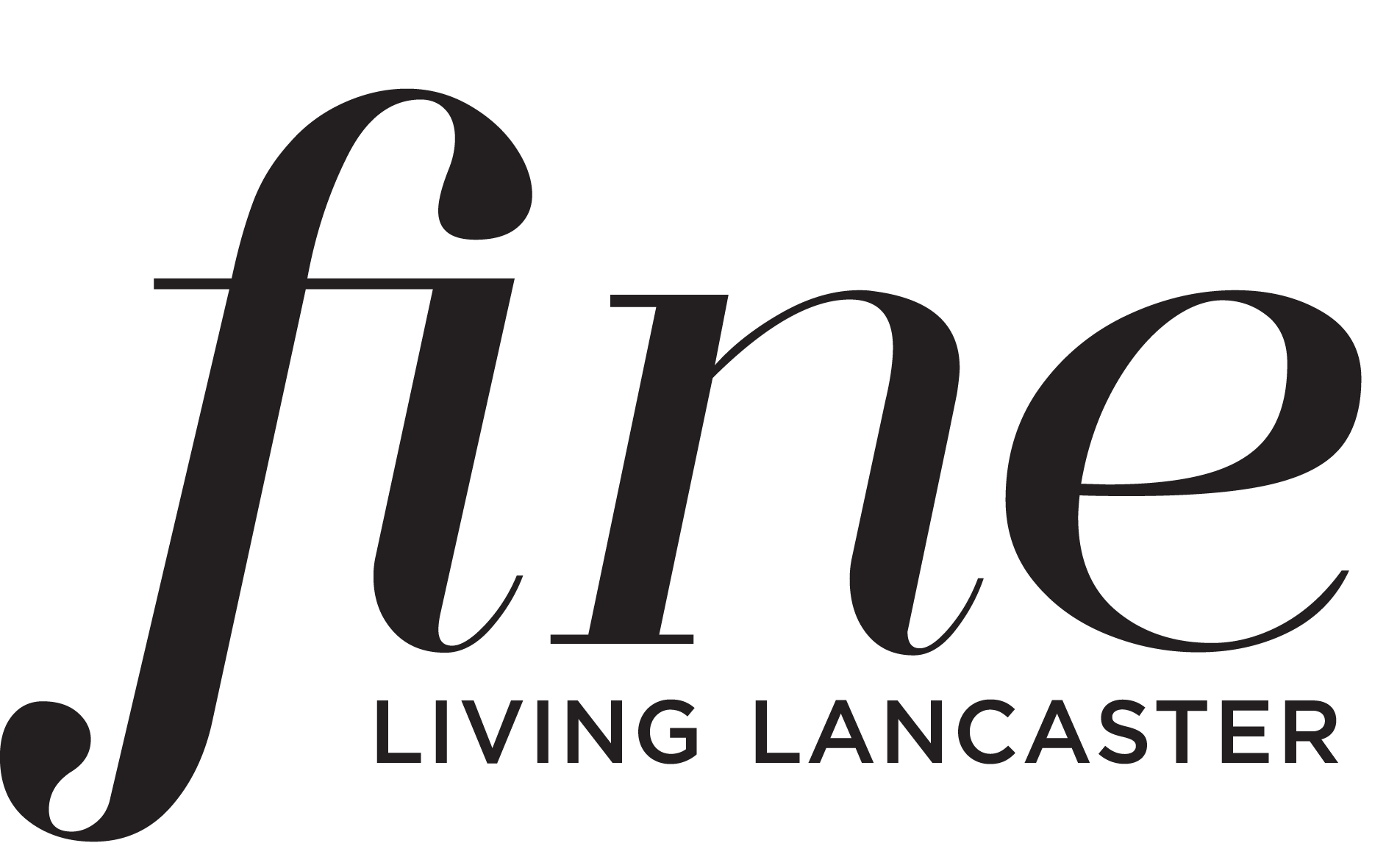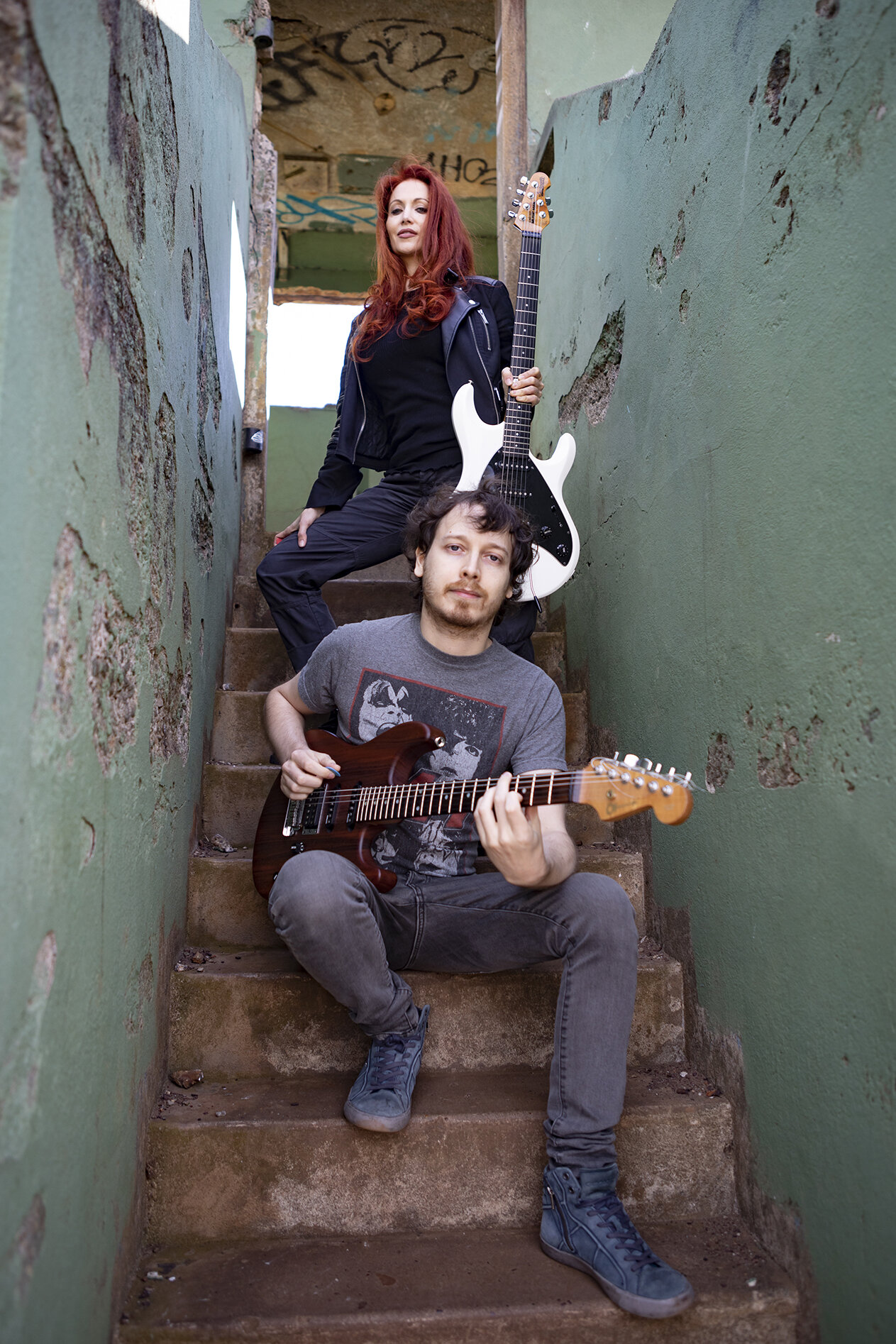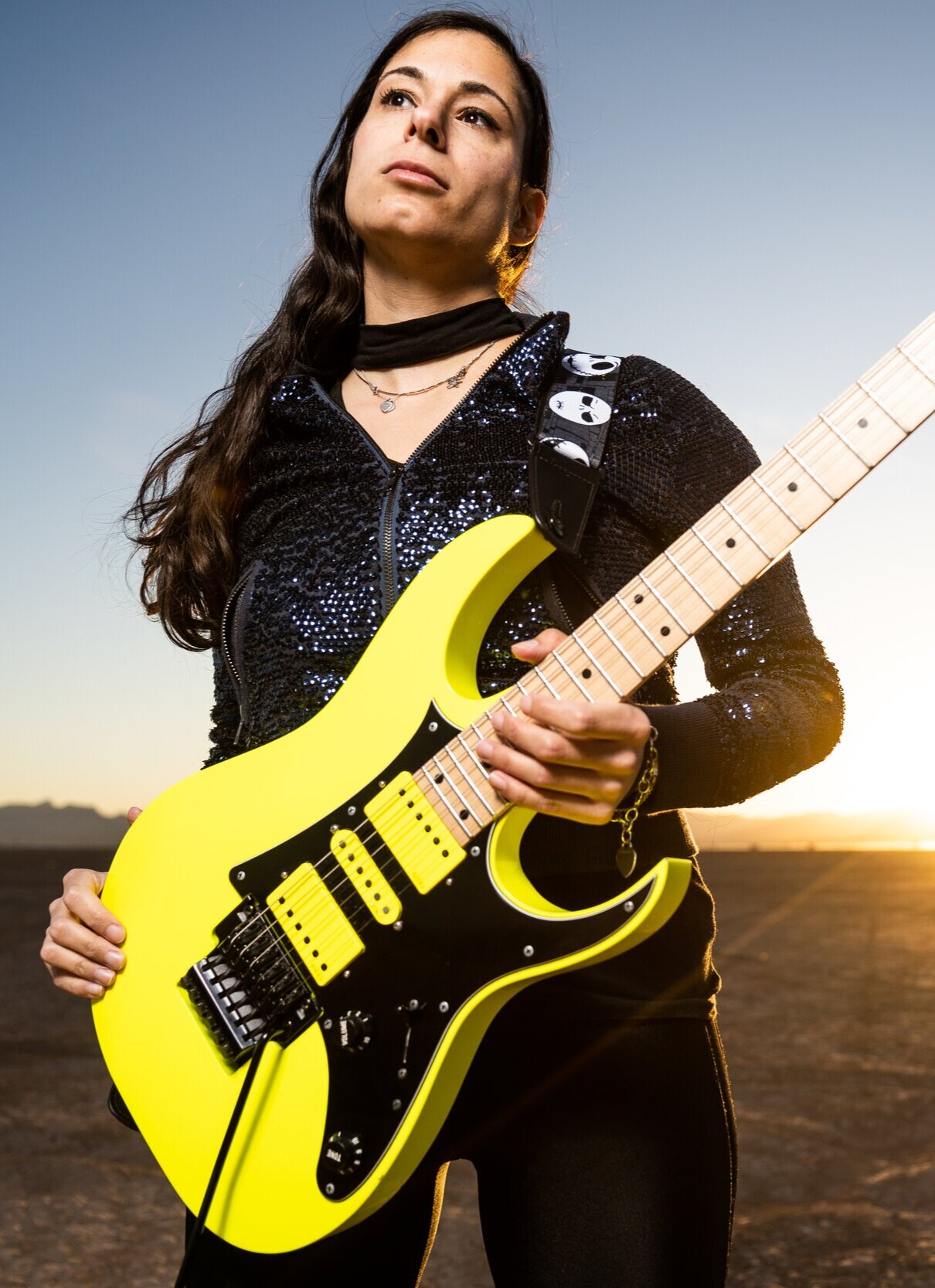Symphony of Love
Gretchen Menn and Daniele Gottardo's Symphony of Love
If the courtship of guitarists Gretchen Menn and Daniele Gottardo was scripted as a Lifetime movie, you'd have Gretchen flying from her California home to meet Daniele in his Italian homeland, preferably in Venice. The sun would be setting over the canals, bathing the city in a stunning magnolia hue. The air would be fragrant and still, as Daniele dropped to his knee to profess his undying love for the goddess of his entire life to come.
Nice story. Didn't happen.
Menn first became aware of Gottardo when someone posted his shred version of "The Simpsons Theme” video on her Facebook page. It wasn't exactly love at first listen.
"I was vaguely annoyed," she admits. "I thought, 'Is this what's expected of guitar players now?' I mentally filed him under 'technical guitarist' and moved on."
They finally met in person at a party during the winter National Association of Music Merchants (NAMM) convention in Anaheim, California, which brings musicians and manufacturers together from all over the world. Later that week, Gottardo traveled to San Francisco and saw Menn perform with Zepparella and her Gretchen Menn Trio. The friendship started flourishing with Daniele back in Italy, and the two started trading English lessons for guitar lessons. Eventually, they began working on musical projects together, and from assisting each other artistically—and each traveling between the U.S. and Italy—a deeper relationship formed.
"But we were impeded by our schedules and all the traveling," says Menn. "For example, Daniele was free to visit me at the same time I was going to be on tour with Zepparella, and then perform solo in Germany and Switzerland. I ended up having to be gone for way more time than I would have liked while he was here."
After years of traveling back and forth, the duo's feelings for each other outmaneuvered the distance, leaving the obvious finale as marriage. But don't expect a Lifetime scene depicting the moment of their engagement.
“Though our relationship often elicited either sighs or eye rolls from friends and family—I mean, it all sounded so over-the-top romantic, and in so many ways it truly was—the decision to get married was hilariously not romantic at all," laughs Menn. "We discussed it, Daniele sighed, and said, 'Let's go ahead.' Then I had to get out a calendar and wedge our marriage date in-between my tour schedule.”
So just maybe the Gottardo-Menn union turned out more like a romcom than an idealized cinematic fairy tale. Love won out, and in a massively big way. Anyone who encounters the duo can see they adore each other, and in an industry where personal and professional partnerships are often disparaged (Yoko Ono or Tommy Mottola, anyone?), these impassioned guitarists and composers are undeniable proof that two people in love can conquer all.
FLL: What inspires you about the other's approach to music?
Gretchen: Where do I start? Daniele is so superlatively brilliant. He's always working to grow artistically, and he's totally unafraid of tackling extremely demanding techniques, both on the guitar and compositionally.
Daniele: I can easily overthink music, and that can become a source of creative blocks. But Gretchen is very bold and decisive in her process—often envisioning a piece before the first note is written. The result is a process where I see great enthusiasm and fresh, genuine expression. She unapologetically cultivates her musical path and resists the temptation of easy attention by following trends or the superficiality that predominates social media today.
FLL: Is it difficult being life partners and artistic collaborators in music making?
Daniele: We both can be strong and opinionated about musical matters, but we tend to approach things as professionals, so any challenges are not felt personally. In our collaborations, my main goal is to understand the piece and the intentions—which is really the same mindset for functioning well in a relationship.
Gretchen: I get to live with and learn from my best friend and musical hero. What could be better? Daniele is an amazing teacher, coach, and my most valued second set of ears. We keep clear musical identities, and there’s respect on both sides of that boundary.
FLL: When you collaborate on a project, how do you typically parse out the creative responsibilities?
Gretchen: There's always a clear driver for anything we do together. Our creative relationship is more of supporting one another along our respective paths, and we are constantly sharing musical ideas. As of yet, we’ve never composed a piece together, though I recently wrote something for the two of us to play.
Daniele: We look to each other for feedback at various points along the creative process. While we don’t do each other’s work, we tend to be very familiar with what we are working on, and we constantly discuss everything from early compositional ideas up to the final music mixes.
FLL: What is the foremost creative advantage your partner brings to the table?
Gretchen: Daniele has a unique combination of guitar mastery, compositional chops, deep knowledge of a wide range of music, incredible ears, and the ability to understand music for what it wants to become. His fluency in so many areas makes him able to provide incredibly helpful advice on practically every aspect of music. Yet he never forces himself or his way on a collaboration, instead focusing on how a piece can best achieve what it is intending to do.
Daniele: While having a lot of points in common musically, I like that we have different backgrounds, both as guitar players and composers. This can be an advantage in complementing each other in a musical collaboration. For instance, Gretchen is very fluid with classical and acoustic guitar—areas in which I don’t even know where to start. Whereas I tend to be more instinctive, she reminds me to focus on the more formal or studious aspects of music making if I’ve overlooked them.
FLL: If you have a creative disagreement, what typically is that debate focused on?
Gretchen: We have friendly debates a lot, but always to get the best we can out of ourselves and our work. One of our most heated debates involved 16th century versus 18th century counterpoint.
Daniele: We both have a passion for counterpoint.
FLL: What is the most important lesson you have learned from the other?
Gretchen: The first thing that comes to mind is creative fearlessness. I think of myself as someone who embraces challenges, but Daniele is at an entirely different level. His willingness to take on projects of seemingly astronomical proportions makes me realize how many limitations I have inadvertently put on myself. For example, Daniele will be impressed by the orchestration of a piece by Rimsky-Korsakov, and he'll bury himself in study—to the point of actually making graphs, charts, and sketches—and he'll come out with something sublime.
Daniele: One of our points in common is the desire for personal and spiritual growth, and every day Gretchen teaches me to reach my higher potential and be a better and more complete person.
FLL: As you are both such independent creators, how do you find room to "let the other in"—to share, and, if necessary, amend your creative process?
Gretchen: It is a tricky space to step into, and I include very few people in my creative process. But I trust Daniele implicitly. He has the perfect balance of helpful ideas and very good boundaries.
Daniele: We know each other’s processes so well that we find it easy and comfortable to share and receive ideas. This is especially helpful if we get to places where we feel stuck. The different points of view can reveal both strengths and weaknesses.
FLL: What's the percentage of who wins most creative "debates"?
Gretchen: I'd say it's 75 percent Daniele, and 25 percent me, and that’s being generous to myself. The debates never last long, as I like to be wrong for as little time as possible. We are both very open to ideas that can improve things, and we are quick to change our minds if a good alternate idea is presented.
Daniele: There is no winner or loser. We can start with a debate, but most of the time it ends with us finding a place of agreement, and always with the goal that the creation be as good as we can make it.
By Michael Molenda







